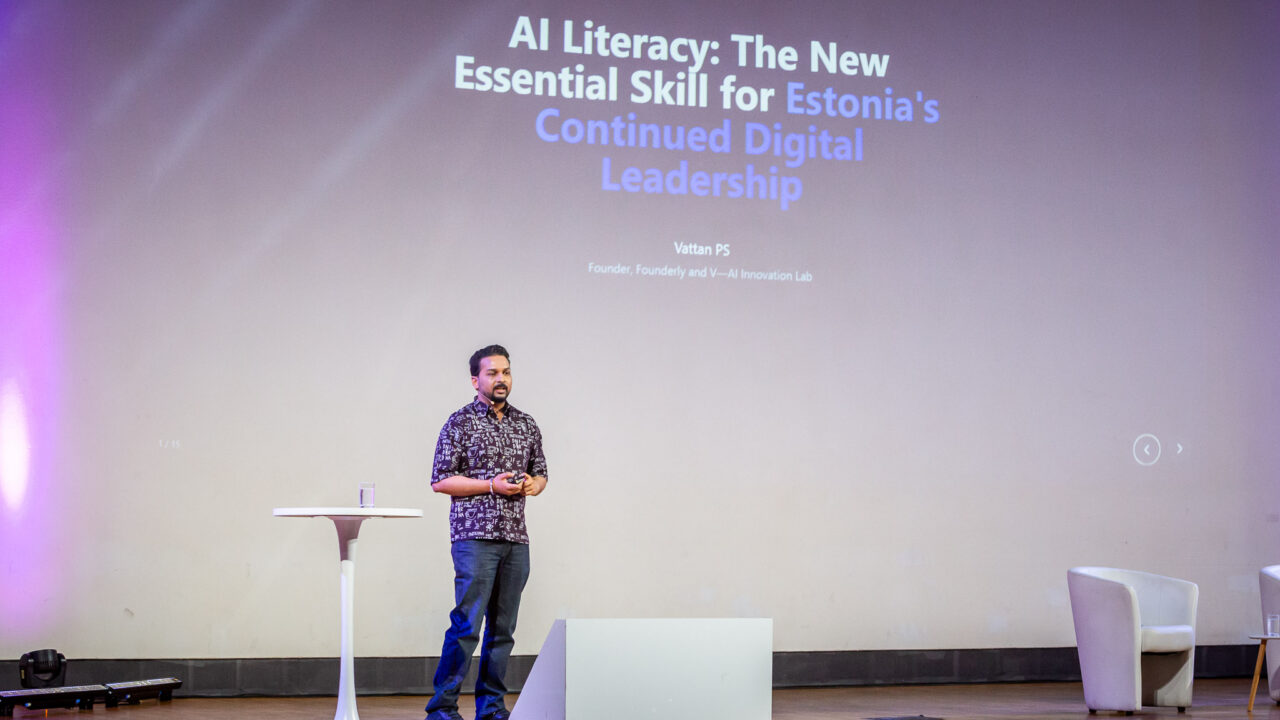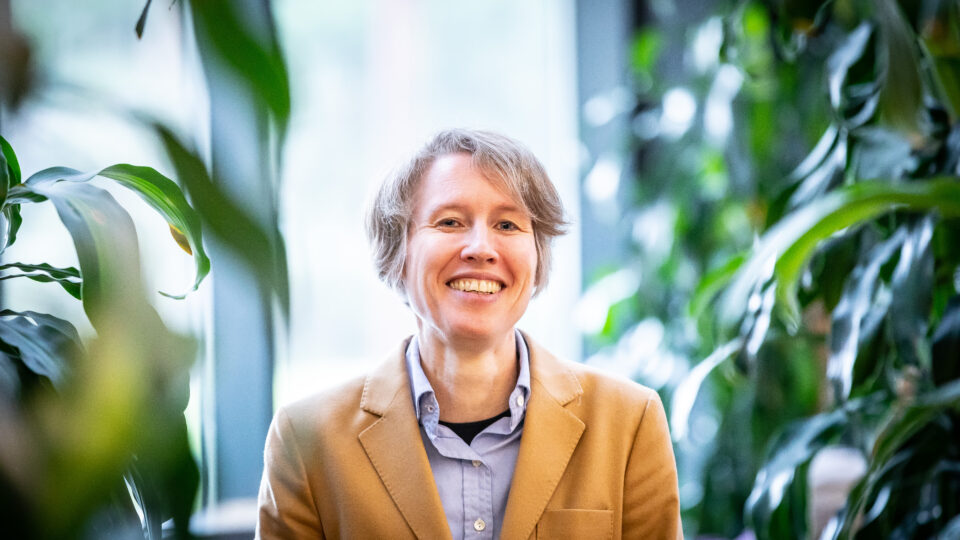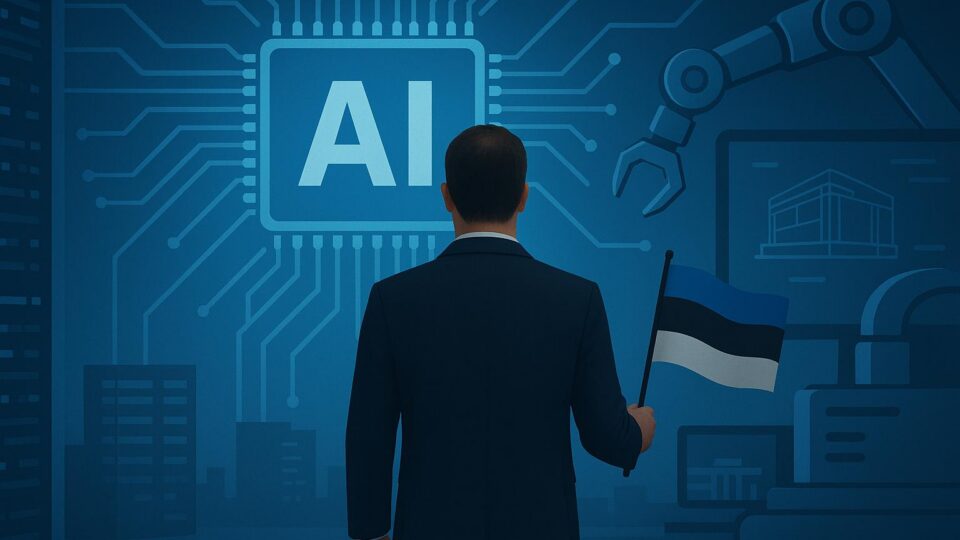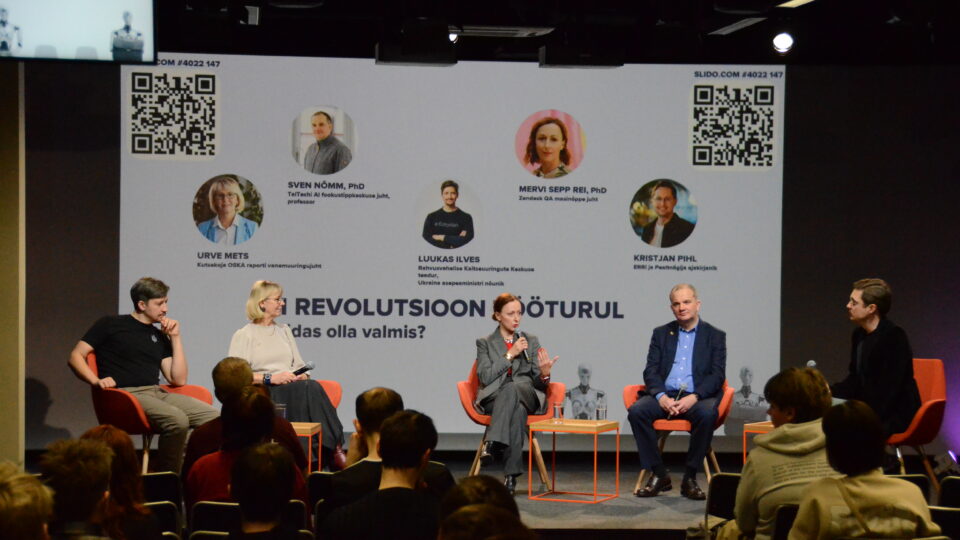At TalTech Innovation Festival, Vattan PS, founder of Founderly – a community connecting startup founders in Estonia – emphasized: if Estonia doesn’t act now, our current digital success might soon be history.
AI literacy will determine both people’s future income and the competitiveness of the entire country. “If we want to remain at the forefront of technological development, AI literacy is the next essential skill,” PS said. According to him, Estonia should not settle for simply using technology – we have the potential to shape directions and set global standards.
“If we want to remain at the forefront of technological development, AI literacy is the next essential skill.”
Only a third of Estonians understand what AI is
PS pointed out that approximately 99% of Estonians use digital services daily. Yet only a third understand how artificial intelligence actually works. At the same time, forecasts indicate that by 2030, AI will impact over 60% of jobs globally and could add up to $15.7 trillion in value to the world economy.
AI literacy doesn’t mean coding or entering better prompts. It means understanding how AI works, knowing its limitations and risks, critically evaluating its outputs, and using it ethically and wisely.
According to PS, knowing how to use AI tools is not enough – it’s crucial to adopt an AI mindset. This enables us not only to consume technology but also to create and guide it. He added that statistics support this mindset: employees with AI competence earn on average 47% more, and companies using AI tend to have higher profit margins.
Estonia has all the prerequisites – the question is whether we’ll use them
PS believes Estonia has a unique chance to become the world’s first AI-literate nation. This isn’t just an ambitious dream – he has a concrete plan:
- In 2025, 20,000 students should be trained.
- By 2026, all public sector employees should have the necessary knowledge.
- By 2027, 100,000 Estonians should be AI-competent.
- By 2030, Estonia could serve as an example to the world.
According to PS, Estonia’s strengths lie in its small size, agility, people’s high trust in government and technology, and its long-standing experience as a digital society.
“Artificial intelligence is no longer something waiting in the future – it already affects our lives today,” PS stressed. Smartphones, map applications, social media – all make millions of AI-based decisions every day, often without us even realizing it.
Generative AI is just beginning to show its capabilities and will grow exponentially in the coming years. PS warned that if we don’t learn to understand how AI works and what it enables, we risk becoming dependent on something we can’t evaluate or control.
His message is clear: assess how well you understand AI – and share your knowledge with family and friends, because their lack of awareness could mean that someone close might lose their job in the near future. That thought, he says, keeps him awake at night.
PS encourages people to get involved in local initiatives and believes everyone has a role to play in raising AI awareness. “We must treat AI like the new internet – it must be understandable and accessible to everyone. If Estonia once managed to build a functioning digital state, we must now be a role model in how we use and understand artificial intelligence,” he concluded.
“Artificial intelligence is no longer something waiting in the future – it already affects our lives today.”
**
TalTech’s 2025 Innovation Festival took place on June 5 under the title “Transformative Technologies: Opportunities, Risks, and Limits.” The festival focused on the role of emerging technologies in society, the economy, and everyday life. Throughout the day, speakers explored the opportunities and risks of technological breakthroughs, highlighted global trends, and analyzed how Estonia could better adapt in a rapidly changing world. Experts and researchers discussed the impact of technology on society, language, data use, supercomputing, chip technology development, and introduced TalTech’s deep tech capabilities.




